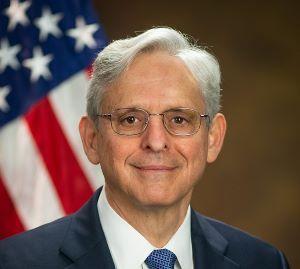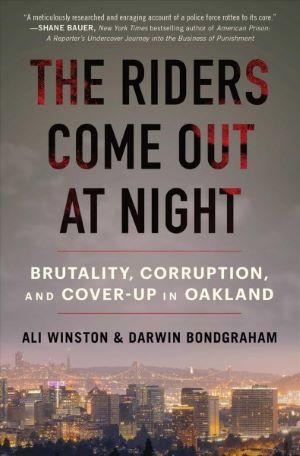Elections have consequences, as Virginia voters are finding out.

The state capitol in Richmond. (Amadeust/Creative Commons)
But Republicans won the governorship and control of the House last November, and now they are refusing to move forward on getting the retail market going. Last week, the still Democratically-led Senate approved a regulation bill, Senate Bill 1133, on a 24-16 vote, but this week, the House General Laws Subcommittee killed it on a party line 5-3 vote.
The vote "was entirely expected, but is still disappointing, and it spotlights House Republicans’ continued failure of leadership on cannabis policy," NORML Development Director and Virginia NORML Executive Director JM Pedini said in a statement.
Not only did the House kill the Senate bill, Pedini noted, also failed to advance multiple marijuana retail sales bills out of its own chamber. Republican backbones were stiffened by Republican Gov. Glenn Youngkin's opposition to the implementation bills. He said he was instead focused on regulating products containing intoxicating hemp-derived cannabinoids such as delta-8 THC.
Virginians now find themselves in the odd position of being able to legally possess up to an ounce of marijuana and grow up to four plants but not legally buy it—for now and the foreseeable future.
"Without access to a regulated marketplace, consumers won’t know whether they’re getting a safe, tested product or one contaminated with potentially dangerous adulterants,"Pedini added.
Sponsored by Sen. Adam Ebbin (D), the bill just killed in the House would have allowed sales to begin on January 1, 2024 and take place at existing medical marijuana dispensaries as well as new enterprises operated by people from "historically economically disadvantaged communities." It also included a provision for resentencing people currently serving time for marijuana convictions.
The bill foresaw a 21 percent excise tax on retail transactions, with localities being able to impose an additional three percent local tax. Tax revenues would have been earmarked for historically economically disadvantaged communities, pre-k education for at-risk youth, and addiction prevention services. An independent Cannabis Control Authority would have regulated the industry.
The bill also would have established regulations for hemp-derived cannabinoid products such as delta-8 THC, which Gov. Youngkin claims to be worried about. It would have established testing and labeling requirements for such products.
"This bill fixes a major public health, consumer safety and public safety issue—and it does what more than 60 percent of Virginia voters want us to do: Regulate these products, ensure they’re safe for consumers and also generates hundreds of millions of dollars from revenue for the Commonwealth," Ebbin told his fellow senators ahead of their vote to approve it last week.
But Republicans in a House committee dashed that dream this week, just as earlier this month, they killed a meek and modest proposal to have the Cannabis Control Authority—which already exists and is funded—begin to draft regulations for legal sales. That bill, House Bill 1464, was also killed by Republicans in a subcommittee.
"All this bill does is says the [Cannabis Control Authority], that y'all have propped up and funded, should do its job of advising you guys of what a market could look like next year," said Greg Habeeb, a former legislator turned lobbyist who represents the Virginia Cannabis Association.
But even that was too much for legislative Republicans, who have made abundantly clear that they are not in the least interested in allowing legal retail marijuana sales to get going. It may take another election for any progress to occur.
back to top
In less than a month, voters in Oklahoma will be deciding if it will become the 22nd state to legalize marijuana. In a special election set for March 7, a marijuana legalization initiative, State Question 820 will be the only item on the ballot.
If it passes, Oklahoma would become the first state between the Mississippi River and the Rocky Mountains to legalize marijuana, blowing a big green hole in that tier of prohibitionist red states running down from North Dakota to Texas.
The initiative should have been on last November's general election ballot. The group behind the measure, Oklahomans for Sensible Marijuana Laws, turned in 69,000 more signatures than needed in a timely fashion, but private contractors hired by the Secretary of State's office took an excessive amount of time to verify the signatures.
Between that and questionable legal challenges from opponents, approval of the measure was so delayed that the state Supreme Court ruled weeks before the election that the measure would have to wait for the 2024 general election or until the governor or legislature calls a special election. Gov. Kevin Stitt (R) then announced the March 7 date.
If approved by voters, SQ 820 would allow people 21 and over to possess up to an ounce of marijuana and eight grams of marijuana concentrates and grow up to six plants and six seedlings at home. It also protects parents from losing custody or visitation rights solely because of marijuana use and states that parolees and probationers cannot be punished for marijuana use. Nor could the odor of marijuana or burnt marijuana be used as probable cause for police to infer that a crime had been committed. And it includes a provision for the expungement of some past marijuana offenses.
SQ 820 gives employers the right to ban marijuana use or fire marijuana-using workers, and it would allow private property owners to ban marijuana use (unless it is not smoked). Likewise, the state or local governments could ban marijuana use in public buildings.
The measure sets up a system of taxed, licensed, and regulated marijuana commerce, but for the first two years, marijuana business licenses would go only to existing medical marijuana businesses that have been operating for at least a year. The state is now also under a moratorium on new grower, processor and dispensary licenses until August 2024, meaning any potential new pot business operators may have to wait awhile to get in the game.
SQ 820 sets a 15 percent excise tax on retail marijuana sales, with revenues going to public schools, drug treatment programs, the courts, local governments, and the state's general fund.
And, of course, it is drawing opposition from the usual suspects. A coalition of community, business, and law enforcement leaders led by former Republican Gov. Frank Keating have organized as Protect Our Kids No 820.
"We simply must protect our children, " Keating warned. "This state question goes well beyond the ballot summary voters will see. Just one example is that hidden inside this question is a clause that expressly lowers the legal threshold for child endangerment. It includes a prohibition on our court system from considering marijuana usage in child custody and visitation cases. These are just a few of the problems."
SQ 820 campaign director Michelle Tilley was unfazed. "We think State Question 820 is actually a positive step in protecting our children. Every, every product has to safety tested, it is regulated," she said.
"Other states had these same scare tactics, and they have legalized," she added. "They have not seen an increase in any underage marijuana use or any negative consequences, like we anticipate the opposition is going to throw out there."
Whether SQ 820 can win at the polls next month is an open question. The most recent poll on the topic, from November, had support at 49 percent, with 38 percent opposed and 13 percent undecided. While initiative campaigns typically want to see a nice 10-point lead to cushion any votes peeled off by late opposition efforts, these numbers suggest that all it needs is a tiny portion of the undecided voters to get on board to get it over the top. Stay tuned.
back to top
Shielded: How the Police Became Unaccountable by Joanna Schwartz (2023: Viking Press, 308 pp., $30 HB)
As Donald Trump laid out his fascistoid law and order platform last month, he vowed to bring back stop-and-frisk, railed against "radical Marxist prosecutors," warned of civil rights investigations of "radical leftist prosecutors" for alleged race-based policing, and promised the death penalty for drug dealers, among other fearsome fulminations. But the first bullet point of his manifesto regarded cops: Not only would he fund record hiring levels; he would also "increase vital liability protection for America's law enforcement."
With that pledge, the not-yet-indicted former president played to longstanding but unproven concerns that citizens' ability to seek civil redress for police mistreatment under civil rights laws would force police officers into bankruptcy if they were found liable for heat-of-the-moment lapses. Equally to be feared -- and equally unproven -- is the notion that being able to hold police liable will inhibit them from fully exercising their crime-fighting powers and protecting public safety.
Not to worry, officer! As UCLA law professor Joanna Schwarz makes clear in Shielded, her new book on (the lack of) police accountability, cops get away with murder. And rape. And torture. And beatings. And various other forms of street-tough thuggery. Schwartz has spent years researching how our legal system protects police at all costs through the accretion over decades of Supreme Court decisions interpreted by a non-representative federal bench with cases tried by juries filled with people who have never had a bad encounter with police. (In federal civil cases, felons cannot be jurors, and the voir dire process eliminates potential jurors with negative perceptions of law enforcement.)
Over the course of decades, the Supreme Court first opened the door to civil rights litigation to address police violation of constitutional rights, then, in case after case, effectively pushed it back until it is now barely open a crack. It is no accident that this has occurred under a Supreme Court that has been sliding to the right for the last 50 years and is now the most reactionary court in a century. One technique is to require plaintiffs to show sufficient evidence of patterns of police misconduct before they are allowed to undertake discovery, the process by which both sides in a case are allowed to see and seek relevant evidence. In the case of rogue police departments, this would be records of officer infractions, incident reports, and the like. But under current Supreme Court precedent, federal judges summarily dismiss cases before discovery because plaintiffs have not produced the evidence they have not yet been allowed to seek. That's a hell of a Catch-22.
Another huge hurdle in front of people seeking redress for police misconduct is qualified immunity, a notion constructed out of thin air by the Supreme Court in 1967 and turned into another Catch-22 by the Supreme Court in 1982. Qualified immunity is a defense to civil rights claims that is granted if the law the cop violated is not "clearly established," and if qualified immunity applies, plaintiffs cannot collect monetary damages. Under the 1982 decision, the federal courts find that qualified immunity applies unless the plaintiff can show a previous case with the exact same facts has been decided in federal court.
But Schwartz shows that the Supreme Court is only one of the "shields" protecting police. At the institutional level, police Internal Affairs bureaus generally do not punish nor track misbehavior. At the municipal level, budgets anticipate having to pay out damages for police behavior, with the taxpayers—not the miscreant officers—paying up. At the state level, legislators pass laws that further protect police. And there are more obstacles that Schwartz elucidates, from the makeup of the federal judiciary and federal juries to financial disincentives for attorneys to spend their careers litigating civil rights cases where they could spend thousands of hours preparing cases only to have them settled and end up being paid a pittance for their efforts.
This is not a book about the war on drugs, but the war on drugs is implicated throughout. Many, many of the encounters between police and citizens that result in civil rights violation complaints arise from the prosecution of the drug war, and many, many of the victims are drug users or suspected drug users.
Schwartz lucidly and cogently explores the mountain of obstacles people seeking justice for police mistreatment face, as well as the obstacles facing people who want to remake the system into something nearer to common notions of justice. Given the current makeup of the Supreme Court and the stalemated state of play in Congress, relief is unlikely to come from the federal government. The problem seems intractable.
But Schwartz sees opportunities for positive change at the state and local levels, and she cites Colorado's 2020 passage of a bill ending qualified immunity, requiring officers found to have operated in bad faith to pay something out of their own pockets (as opposed to being indemnified by the city or state, which pays the judgement), and allows plaintiff attorneys to recover their fees when they prevail.
This is an important, eye-opening work. If you are concerned about who will guard us from the guardians (and how), it is indispensable.
back to top
The Riders Come Out at Night: Brutality, Corruption, and Cover-Up in Oaklandby Ali Winston & Darwin Bondgraham (2023, Atria Books, 467 pp., $30 HB)
The killing of Tyre Daniels by Memphis police officers who were members of an aggressive anti-crime unit has reignited longstanding public concerns about police brutality and, more broadly, police culture. How is it that American police generate an Eric Garner, a Philandro Castile, a Breonna Taylor, a George Floyd, a Tyre Daniels, another dead person of color and another, on a regular basis?As the brief list above suggests, and as the massive wave of protests in towns and cities across the land in the wake of the George Floyd killing confirms, thuggish, sometimes murderous cops are not just a Memphis problem. Almost every big city police department has its own legacy of scandalous brutality, much of it linked to the enforcement of drug prohibition. Oakland, California, is no exception.
In the case of the gritty East Bay city, it was the Riders scandal two decades ago that was so outrageous it generated mass protests, a criminal trial of the police involved, and a successful civil lawsuit that resulted in the Oakland Police Department force to operate under the supervision of a federal judge enforcing a consent decree.
In The Riders Come Out at Night, veteran investigative journalists Ali Winston and Darwin Bondgrahm use the Riders scandal as the fulcrum with which they pry open the inner workings of a police department long notorious for corruption and brutality. It's a tale not just of cop acting like criminals but also of a departmental culture more interesting in protecting its own than protecting the citizenry and elected officials more interested in playing "tough on crime" politics than ensuring that the police do not abuse the public.
Like the Memphis SCORPION unit now under the spotlight, the Riders were a specialized crime-fighting unit, celebrated for their aggressive tactics against drug dealers and other scofflaws and held up as an example for incoming rookie officers. A growing pile of police brutality complaints vanished into the police bureaucracy that was supposed to address them, and it took one of those rookie officers, sickened by what he was witnessing from his trainers, to finally bring the scandal into the open.
When it broke, it broke big, with four of the Riders eventually going to trial for the assaults and other crimes they committed (one of them fled and remains a fugitive to this day), only to escape criminal punishment after being vigorously defended by lawyers paid for by the police union. But they and the department could not escape a civil lawsuit filed on behalf of 119 Oakland residents that resulted in a federal consent decree forcing the department into oversight by a federal judge. That was 2003. The department remains under that consent decree to this day because it has been unable or unwilling to make the reforms necessary to satisfy the judge.
Since that 2003 consent decree went into effect, the Oakland PD has suffered renewed scandals on a regular basis, ranging from run of the mill police killings to the killing of four Oakland cops by one man in an incident that laid bare deficiencies in police training to the scandal around Oakland (and other) cops having sex with a troubled teen. And then there was the killing of Oscar Grant at the Fruitvale BART station—not by an Oakland cop but by a BART officer—and the Oakland Police's thuggish response to protests around that killing. And the spying on and attacks on Occupy protestors in 2011.
And on and on. It's as if the Oakland Police is a recidivist organization. The authors describe a culture within the department that has been historically racist, sexist, and anti-worker, dating back to anti-Chinese policing in the late 1800s, the Ku Klux Klan presence in the force in the 1920s, and the violent suppression of strikes in the 1930s. It bashed hippies in the 1960s and terrorized black Oaklanders in the 1980s and 1990s as it prosecuted the war on drugs.
It also generated a decades-long resistance movement, often led by the families of the people the department killed that has managed to impose reforms. And it eventually inspired the consent decree under which the department still labors, but it's always two steps forward, one step back.
As they examine this sordid history, Winston and Bondgraham concede that the department has changed, become less deadly and more transparent, and even occasionally capable of punishing miscreants within the ranks. But they argue that the transformations necessary to civilize policing in Oakland (and elsewhere) are greater than the institution of the police:
Whether policing in Oakland will ever get to the point where most people can agree it has been fundamentally transformed—no longer anything like the institution the Riders thrived in, no longer the force that terrorized Black Oakland after World War II and well into the 2000s—depends very much on whether there are broader societal shifts. So long as Oakland and the rest of America is riven by extreme race and class inequalities and the power of the federal government is not brought to repair the economies of destitute cities and rural areas, and deal with the intergenerational trauma that leads to despair and hopelessness, then it's very likely the police will continue serving more or less the same function they have for well over half a century: containing and repressing the symptoms of broader social problems through violence.
The Riders Come Out at Nightis thoroughly researched, compellingly written, and eye-opening. It is also an achingly timely examination of the role of police in society and how we figure out who will guard us from the guardians. This is a real contribution to the literature of policing in America, and it does not paint a pretty picture.
back to top
A North Carolina medical marijuana bill is moving, an Idaho initiative campaign is not, and more.
IdahoIdaho Medical Marijuana Initiative Campaign Comes Up Short on Signatures. Kind Idaho, the group behind an effort to get a medical marijuana initiative on the 2024 ballot, announced Wednesday that it had come up short on signatures. The group said it had managed to collect only about 10 percent of the nearly 70,000 valid voter signatures needed to qualify for the ballot. It cited organizational problems and a lack of national support for the effort.
Kansas
Kansas Senate Committee Will Hold Informational Hearing on Medical Marijuana This Week. The Senate Committee on Federal and State Affairs will hold informational hearings Wednesday and Thursday on the legalization of medical marijuana. No bill has been filed yet this session, but pressure is mounting with neighboring Missouri having legalized recreational marijuana last November and neighboring Oklahoma set to vote on recreational legalization next month. "You know, Kansas, sometimes we're kind of behind on things and, you know, we hear about it all the time where people are going across the state line to purchase those items," said medical marijuana supporter Sen. Oletha Faust-Goudeau, the ranking Democrat on the committee.
North Carolina
North Carolina SenateGives Initial Approval to Medical Marijuana Bill. The state Senate on Tuesday voted to approve Senate Bill 3, the North Carolina Compassionate Use Act, on a second reading. It still needs to be approved in a third reading before being sent to the House, and that is expected to happen within a few days. House leaders said they were positioned to pass the bill, too, despite having blocked a similar bill last year. The bill would allow patients with a specified list of ailments to use medical marijuana and buy it from licensed dispensaries. The bill contains neither home cultivation nor social equity provisions.
Pennsylvania
Pennsylvania GOP State Senator Pushes State to Reconsider Gun Restrictions on Medical Marijuana Patients. In the wake of a federal judge's recent ruling that the federal government's ban on gun ownership for marijuana users is unconstitutional, state Sen. Dan Laughlin (R) is calling on state law enforcement to protect the rights of medical marijuana patients by bringing state policy in line with that ruling Currently, the state bars people from obtaining a gun license if they acknowledge being "an unlawful user" of marijuana, and even medical marijuana use in states where it is legal remains technically illegal under federal law. "I believe Pennsylvania can take a measured approach to lifting the prohibition on otherwise qualified medical cannabis users from obtaining their license to carry," Laughlin wrote. Since the federal court ruling, it is time for "reconsideration of the question on these forms."
back to top
A small-town Pennsylvania police chief was slinging dope, so was an Ohio narcotics detective, and more. Let's get to it:
In Greenburg, Pennsylvania, the Greenburg police chief was arrested January 25 for helping to distribute cocaine, meth, and other drugs. Chief Shawn Denning, 41, allegedly peddled dope for a 16-month period from June 2021 to October 2022 and went down after DEA investigators used an informant to collect evidence against him. Denning repeatedly hooked up the informant with drug suppliers he knew in California and the informant repeatedly successfully scored ounces of cocaine, among other drugs. Denning now faces six federal counts of drug distribution-related charges, and he is no longer the chief. In Cleveland, Ohio, a state prison guard was arrested January 30 for smuggling methamphetamine and other drugs into the Lorain Correctional Institution. Guard Daryl Gus, 35, went down after the prison officials tipped the DEA that they had listened to an inmate's phone calls and heard him directing people to deliver drugs to Gus. The DEA then joined the investigation, searching Gus's phone records and financial activities, and finding sufficient evidence to arrest him on a federal charge of conspiring to distribute drugs.
In San Diego, a San Diego sheriff's deputy was arrested last Friday after suspected cocaine was located inside his vehicle on jail property. Deputy Allen Wereski, 48, went down after his coworkers discovered "suspected cocaine" inside his car. He was suspended without pay, as well as being jailed on $25,000 bail for count of bringing a controlled substance to a correctional facility.
In Columbus, Ohio, a former Columbus narcotics officer was sentenced last Friday to nine years in federal prison for trafficking more than eight kilograms of drugs, including cocaine and fentanyl. Marco Merino, 45, had pleaded guilty a year ago to accepting bribes and conspiracy to distribute fentanyl. Merino and former officer John Kotchkoski dealt drugs together as narcotics detectives. Kotchkoski pleaded guilty in April to a single count of fentanyl trafficking and awaits sentencing. The pair went down after trying to sell eight kilos of fentanyl to a man they thought was a snitch but who was actually an undercover FBI agent.
back to top
Queensland will become the first Australian state to okay pill-testing, Vancouver magic mushrooms shops are not illegal but thriving anyway, and more.

A fentanyl test strip. South Dakota just legalized them, and a bill to do the same is advancing in Kansas. (Creative Commons)
Kansas Bill to Legalize Fentanyl Test Strips Passes House. In a bid to reduce overdose deaths in the state, the House voted last Thursday for a bill that would clarify that fentanyl test strips are not drug paraphernalia, House Bill 2390. A similar measure passed the House last year, only to die in the Senate. The House also passed a bill that would stiffen penalties for fentanyl manufacturing, House Bill 2398. That bill doubles the existing sentence under state law and includes a mandatory prison sentence.
South Dakota Governor Signs Bill Decriminalizing Fentanyl Test Strips. In an effort to reduce overdose deaths, Gov. Kristi Noem (R) has signed into law a bill that clarifies that fentanyl test strips are not drug paraphernalia, House Bill 1041. "We're trying to prevent overdoses for those people that are at high risk populations," said bill sponsor Rep. Taylor Rehfeldt (R).
International
Queensland Becomes First Australian State to Introduce Pill Testing. State Health Minister Yvette D'Ath announced Saturday that Queensland will introduce pill testing at mobile and fixed sites, making it the first Australian state to do so. "Pill testing is all about harm minimization," she said. "We don’t want people ending up in our emergency departments or worse losing their life. It is important to note that pill-testing services do not promote that drugs are safe, however they are among a suite of options that can positively affect outcomes regarding illicit drug use." The move follows two pill-testing trials at Canberra’s Groovin’ the Moo festival in 2018 and 2019, and an ongoing trial at a fixed site. Queensland may be the first state to embrace the harm reduction measure, but the Australian Capitol Territory began a trial last year.
Vancouver Magic Mushroom Shops Operating Openly. Canada's West Coast metropolis now boasts at least nine shops that sell magic mushrooms and other psychedelic substances even though such shops are not legal. The owners of the shops say they are employing many of the same tactics used by marijuana shops that sold the drug before it was legal. They argue that they are providing patients with crucial access to a drug that is nearly impossible to obtain despite Health Canada approving it for some uses. Police, focused on harder drugs, appear indifferent. Now, similar stores have sprung up in Ottawa, Toronto, and Hamilton.
back to top
A Pennsylvania GOP state senator is pushing for gun rights for medical marijuana patients, an Italian court clarifies that hemp is not a narcotic, and more.

Kansas does not have any medical marijuana dispensaries. Patients are growing impatient. (Creative Commons)
White House Approval Sought for Changes to Marijuana Questions in Federal Hiring Process. The Office of Personnel Management is seeking White House approval for a shift in federal hiring practices that would treat marijuana use by job applicants much more leniently than is the case now. Under current policy, applicants are asked about use within the past one, five, or seven years, depending on the position's security level. That would change to inquiring only about use within the past 90 days under the proposal. Marijuana would not be included in questions about broader illegal drug use but would be asked about separately. The proposed changes are expected to expand the pool of candidates eligible for federal jobs.
Medical Marijuana
Kansas Senate Committee Will Hold Informational Hearing on Medical Marijuana This Week. The Senate Committee on Federal and State Affairs will hold informational hearings Wednesday and Thursday on the legalization of medical marijuana. No bill has been filed yet this session, but pressure is mounting with neighboring Missouri having legalized recreational marijuana last November and neighboring Oklahoma set to vote on recreational legalization next month. "You know, Kansas, sometimes we're kind of behind on things and, you know, we hear about it all the time where people are going across the state line to purchase those items," said medical marijuana supporter Sen. Oletha Faust-Goudeau, the ranking Democrat on the committee.
Pennsylvania GOP State Senator Pushes State to Reconsider Gun Restrictions on Medical Marijuana Patients. In the wake of a federal judge's recent ruling that the federal government's ban on gun ownership for marijuana users is unconstitutional, state Sen. Dan Laughlin (R) is calling on state law enforcement to protect the rights of medical marijuana patients by bringing state policy in line with that ruling Currently, the state bars people from obtaining a gun license if they acknowledge being "an unlawful user" of marijuana, and even medical marijuana use in states where it is legal remains technically illegal under federal law. "I believe Pennsylvania can take a measured approach to lifting the prohibition on otherwise qualified medical cannabis users from obtaining their license to carry," Laughlin wrote. Since the federal court ruling, it is time for "reconsideration of the question on these forms."
International
Italian Court Rules Hemp Flower and Leaves Are Not Narcotics. An Italian court, the Lazio Regional Administrative Court, has thrown out a section of national law that defined hemp leaves and flowers as narcotics, bringing Italy in line with the European Court of Justice. That court ruled in 2020 that hemp, which does not contain more than traces of psychoactive THC, should not be regulated as an illicit drug. The Italian court ruling came after four industry associations filed an appeal against a January 2022 Ministerial Decree that put the cultivation, processing, and marketing of hemp products under the control of narcotics regulators. "Today we have definitive confirmation that without valid scientific evidence it is not possible to limit this agricultural supply chain. The THC-free hemp plant is not part of the international conventions on narcotics and for this reason its market and industrial and medicinal applications cannot be limited," the plaintiffs said in a statement after the ruling.
back to top
North Carolina's Senate gives initial approval to a medical marijuana bill, New Jersey lawmakers pass a bill giving pot businesses the ability to take state business tax deductions, and more.

Benzodiazepines such as Valium will be subject to tighter telehealth prescribing rules as the COVID emergency ends. (CC)
Minnesota Marijuana Legalization Bill Advances Yet Again. The Senate version of the bill, Senate File 73, passed out of the Senate Health and Human Services Committee Tuesday, bringing the number of Senate committees to approve the bill to six. A companion bill in the House has already passed 10 House committee. Democratic-Farm-Labor (DFL) Party officials, who control both the legislature and the governor's office, are confident the bill will pass and be signed into law in short order.
New Jersey Lawmakers Ease Tax Penalty for Marijuana Businesses. Legislators in Trenton gave final approval Monday to a bill that would allow the state's legal marijuana industry to take state business tax deductions like any other legal business in the state, Senate Bill 340. The measure would uncouple the state's corporate business tax from federal rules that bar marijuana businesses from getting deductions and credits on federal taxes. The Senate took a final vote Monday, months after the House passed a companion version of the bill last October. The bill now goes to the desk of Gov. Phil Murphy (D).
Washington Bill to Bar Pre-Employment Marijuana Testing Advances. The state Senate has approved Senate Bill 5123, which would end almost all pre-employment marijuana testing in the state, on a 28-21 vote. There are exceptions for the airline industry, federally regulated jobs that require drug testing, and "safety sensitive" positions. The bill now heads to the House.
Medical Marijuana
North Carolina SenateGives Initial Approval to Medical Marijuana Bill. The state Senate on Tuesday voted to approve Senate Bill 3, the North Carolina Compassionate Use Act, on a second reading. It still needs to be approved in a third reading before being sent to the House, and that is expected to happen within a few days. House leaders said they were positioned to pass the bill, too, despite having blocked a similar bill last year. The bill would allow patients with a specified list of ailments to use medical marijuana and buy it from licensed dispensaries. The bill contains neither home cultivation nor social equity provisions.
Drug Policy
Feds Will Start Limiting Telehealth Prescriptions for Painkillers, ADHD Drugs. Federal officials are tightening access to certain drugs with a potential for abuse after rules were loosened during the coronavirus pandemic. The Biden administration will require an in-person appointment rather than a telehealth appointment for patients to obtain an initial prescription for opioid pain relievers and attention-deficit/hyperactivity disorder (ADHD) drugs like Adderall and Ritalin. Refills could be obtained via telehealth, though. The DEA is also tightening up access to drugs such as codeine, Xanax, Ambien, and buprenorphine. People will be able to get an initial 30-day prescription for such drugs via a telehealth appointment but will have to see a doctor in person to get a refill. The new rules are set to go into effect on May 11, when the coronavirus public health emergency ends.
back to top
California legal marijuana sales revenues decrease for the first time ever, a fourth Michigan city endorses natural psychedelic decriminalization, and more.

Attorney General Merrick Garland says DOJ is "still working" on marijuana policy. (DOJ)
Attorney General Says DOJ Still Working on Federal Marijuana Policy Approach. In an appearance before the Senate Judiciary Committee on Wednesday, US Attorney General Merrick Garland (D) said the Justice Department is "still working on marijuana policy" and that a broader review of marijuana's scheduling status was being led by federal health officials. "I think that it’s fair to expect what I said at my confirmation hearing with respect to marijuana and policy, that it will be very close to what was done in the Cole Memorandum," he said, referring to an Obama-era policy that directed federal prosecutors to generally not interfere with state cannabis laws but which was later rescinded by Trump Attorney General Jeff Sessions. "We’re not quite done with that yet,"Garland said of the marijuana policy review. Garland added that the Justice Department had prioritized finalizing a memo of crack cocaine prosecutions, which has now been completed.
In Sign of Legal Industry's Woes, California Marijuana Sales Declined for First Time Since Legalization. According to the state Department of Tax and Fee Administration, legal marijuana sales totaled $5.3 billion last year, down 8.2 percent from the $5.77 billion in 2021. That marks the first time sales have decreased since the state launched its recreational marijuana market five years ago. Industry observers point to high taxes and the limited number of pot shops for the decrease. As one Emerald Triangle pot farmer, Johnny Casali of Huckleberry Hill Farms explained: "Most of us farmers have been trying to tell the state [regulators] that the marketplace is imploding,"says Casali. "The drop in retail sales means the customer is tired of paying the exorbitant taxes and are now buying it from a friend of a friend or the guy on the corner."
Medical Marijuana
Tennessee Medical Marijuana Bill Killed in Committee. No medical marijuana for you, Tennesseans! At least not yet. The Senate Judiciary Committee voted on a near party-line vote Wednesday to kill Senate Bill 1104, which would have set up a system of medical marijuana access in the state. Meanwhile another medical marijuana bill, House Bill 172,was "taken off notice" last week, meaning it is effectively dead for this session. Maybe next time.
Psychedelics
Fourth Michigan City Decriminalizes Natural Psychedelics. Move over, Ann Arbor, Detroit, and Hazel Park—Ferndale has now joined the group of Michigan cities to embrace psychedelic reform. On Monday night, the city council voted unanimously to approve a resolution decriminalizing "entheogenic plants and fungi," such as psilocybin mushrooms, ayahuasca, and its chemical compound, DMT. The resolution makes the "investigation and arrest of persons for planting, cultivating, purchasing, transporting, distributing, engaging in practices with, or possessing Entheogenic Plants or plant compounds which are on the Federal Schedule 1 list" the lowest law enforcement priority for the city The ordinance was pushed by the local Decriminalize Nature affiliate, Decriminalize Nature Ferndale.
back to top
A Florida marijuana legalization initiative is about halfway home on signature gathering, Arizona politics is roiled by an unsubstantiated charge that the Sinaloa Cartel is bribing state and county officials, and more.

A BC company has been awarded a license to make and distribute cocaine. (Pixabay)
Florida Marijuana Legalization Initiative Campaign Nears Halfway Point on Signature Gathering. Smart & Safe Florida, the group behind a marijuana legalization constitutional amendment, is nearing the halfway point in signature gathering, according to the state Division of Elections. The campaign had 420,000 valid voter signatures as of the end of February; it needs 891,589 valid voter signatures by February 1, 2024 to qualify for the 2024 ballot. That is, provided that the initiative passes muster with the state Supreme Court. In January, the campaign handed in enough signatures to trigger a Supreme Court review to ensure that the text does not violate the state's single subject rule and does not mislead voters. That analysis is still pending.
Early Voting Now Underway for Oklahoma Marijuana Legalization Initiative. Early voting is now underway for the State Question 820 marijuana legalization initiative. Election Day itself is next Tuesday. SQ 820 would allow people 21 and over to possess up to an ounce of marijuana and eight grams of marijuana concentrates and grow up to six plants and six seedlings at home. It also protects parents from losing custody or visitation rights solely because of marijuana use and states that parolees and probationers cannot be punished for marijuana use. Nor could the odor of marijuana or burnt marijuana be used as probable cause for police to infer that a crime had been committed. And it includes a provision for the expungement of some past marijuana offenses.
Politics
Bizarre Charge That Arizona Governor, Other State Leaders Are Taking Bribes from Sinaloa Cartel. Last week, the Joint Elections Committee led by Republican election conspiracy theorist Sen. Wendy Rogers heard completely unsupported testimony from a local insurance agent that Democratic Gov. Katie Hobbs, Democratic Attorney General Adrian Fontes, and the Republican-led Maricopa County Board of Supervisors were among state officials taking bribes from the Sinaloa Cartel. Since then, even Republican officials have been distancing themselves from the charge, while Democrats are blasting Republicans for turning the legislature into a "circus show" that provides a forum for outrageous election fraud conspiracies. "It is dangerous," Hobbs said. "It makes the legislature, quite honestly, a laughing stock, and Arizona by extension, and I hope folks are held accountable for this."
International
Health Canada Issues License to British Columbia Company to Make and Sell Cocaine. Health Canada has issued a license to a British Columbia company, Adastra Labs, to produce, sell, and distribute cocaine. The agency said Adastra is licensed to use cocaine for "scientific and medical purposes only" and that it "cannot sell products to the general public." Last week, Adastra announced that it had received approval to "interact with" up to 250 grams of cocaine and to import coca leaves to manufacture and synthesize the drug. It said it is exploring "commercialization" of cocaine to provide a safe supply of the drug. But Health Canada said Adastra can only sell cocaine to other controlled drug dealer's license holders, such as pharmacists, practitioners, hospitals, or researchers. The province has decriminalized the possession of up to 2.5 grams of cocaine and other drugs, but BC's decriminalization does not envision legal cocaine sales.
back to top










